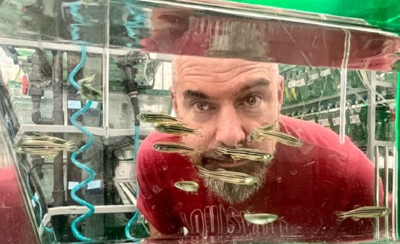LOUISVILLE, Ky. (WDRB) -- Researchers at the University of Louisville plan to use a $2.3 million grant to study the link between genetics and an increased risk of Fetal Alcohol Spectrum Disorders in infants.
Since zebrafish share 82% of the same genes as humans, researchers have been studying the fish in to find ways of lowering the risk of getting the condition.
It's well-known that FASD can be caused by drinking alcohol when pregnant, but not all babies exposed to alcohol will develop symptoms, according to a news release from the university. Now, researchers are working to identify and understand which genes might increase the risk in hopes of helping mothers make safer, more informed choices.
"This condition can be harmful to both mom and baby," said Ben Lovely, the study's principal investigator and an assistant professor of biochemistry and molecular genetics. "Our goal is to help both by gaining insight into not just the surface-level risk factors, but also the genetic risk factors that haven’t really been explored."
Fetal Alcohol Syndrome symptoms can include behavioral problems, learning and physical development, including craniofacial malformations, such as a thin upper lip or small eye openings. About one in 20 — or 5% — of school-aged children in the U.S. may have the condition.
Lovely said the issue isn't as simple as women avoiding alcohol after they learn they're pregnant "because the most sensitive window for FASD exposure is before many women even know they’re pregnant," the release states.
"Part of this is removing the stigma so we can talk about these things and find solutions that prevent or help mitigate the risks and effects of FASD," Lovely said. "And the good news is, there may be some ways to do that."
Researchers have had promising results using the fish in their studies: there may be some simple ways to protect against FASD by tweaking the formula of prenatal vitamins or developing therapeutics that address birth defects that do happen.
Related Stories:
- Biotech company hopes to make Louisville a hub for cell therapy
- U of L liver research center receives $11.3 million national grant
- U of L researchers uncover less toxic way to deliver drugs
Copyright 2024 WDRB Media. All Rights Reserved.











